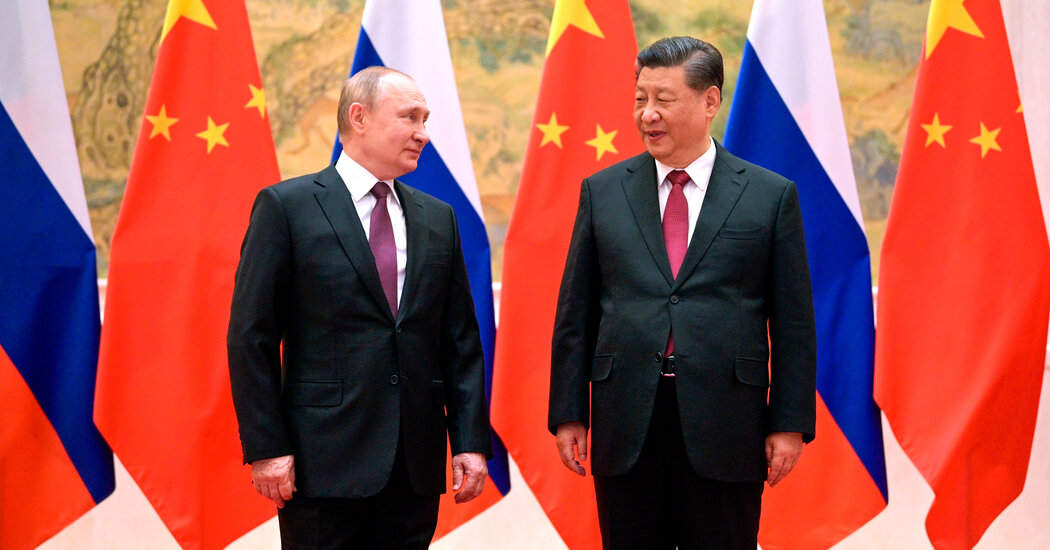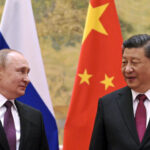
Chinese state media covered the meeting on Friday between Russia’s and China’s top leaders in painstaking, sometimes fawning detail, as a sign of what they described as the unshakable unity between the countries.
Before the arrival of President Vladimir V. Putin of Russia, Chinese media was blanketed with reports of a written interview Mr. Putin gave to a day earlier to a state media outlet. The interview highlighted not only Mr. Putin’s declarations of Russia-China economic and political cooperation, but also his tips for ice hockey lovers.
As Mr. Putin arrived in Beijing, China Central Television, the state broadcaster, documented every move, from his plane touching down to his motorcade proceeding to Diaoyutai State Guesthouse, where China’s leader, Xi Jinping, waited to greet him.
“Beijing time Feb. 4, 3:10 p.m., Putin’s motorcade has arrived,” a CCTV anchor said. “The meeting between the Chinese and Russian leaders is about to officially begin.”
Another reporter with the state broadcaster stood on the tarmac as the plane landed, holding a stuffed polar bear and a stuffed panda. “I specially brought two little friends to wait for the plane with me,” she said, explaining that they were the mascots of the 2014 Sochi Olympics, in Russia, and the 2022 Beijing Olympics.
“Today, these two friends meeting on this special day extends their formal ice and snow friendship,” she added.
Another video by CCTV, posted Friday evening, featured a montage of Mr. Putin and Mr. Xi over the years — clinking champagne glasses, riding in a speedboat, peering at a panda — set to a soundtrack of swelling orchestral music.
On Weibo, China’s Twitter-like social media platform, many users welcomed Mr. Putin and said that they hoped for closer ties between China and Russia, especially given tensions with the United States. A hashtag about it being Mr. Putin’s first trip abroad this year was trending on Friday, and had been viewed 17 million times.
Still, Shi Yinhong, a professor of international relations at Renmin University in Beijing, cautioned against overstating the significance of the meeting. He said that while ties between the countries were deepening, they still fell short of a formal alliance. Neither country had pledged military support to the other in case of conflict in Ukraine or Taiwan, he added.
As a result, each leader would continue to make his own strategic calculations largely independent of the other, he said.
“China of course doesn’t want to see war in Ukraine, and it especially doesn’t want to see tensions escalate during the Olympics,” Professor Shi said. But “in Putin’s calculations, he is thinking about Ukraine, NATO, America’s Eastern European allies and America itself. China is at the back.”




